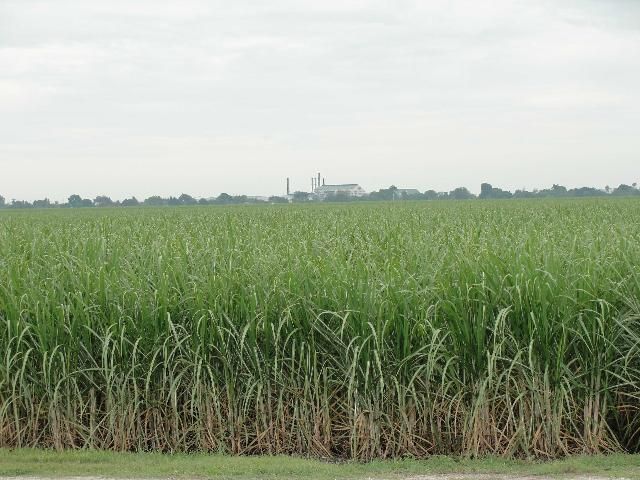The Growing Popularity of Sugarcane Product in the Plant-Based and Sustainable Markets
The Growing Popularity of Sugarcane Product in the Plant-Based and Sustainable Markets
Blog Article
Checking Out Sugarcane Products: Versatile Profits and utilizes
The exploration of sugarcane products reveals an amazing range of applications that extend well beyond the familiar realm of sweeteners. As we take a look at the diverse contributions of sugarcane, one may wonder exactly how these varied usages can reshape markets and way of lives in a quickly evolving globe.
Summary of Sugarcane
Although sugarcane is often associated primarily with sugar manufacturing, it is a functional crop with an abundant background and numerous applications. Cultivated in subtropical and tropical regions, sugarcane flourishes in well-drained soils and cozy climates, adding significantly to several economic situations worldwide. This seasonal turf, belonging to the category Saccharum, can expand to heights of as much as 4 meters, showcasing its durable nature.
Past its key role in sugar extraction, sugarcane acts as an important source for various byproducts. The coarse deposit, called bagasse, is used for creating bioenergy and as a resources for manufacturing paper and biodegradable products. Additionally, molasses, a spin-off of sugar refining, is abundant in nutrients and frequently used in animal feed and fermentation procedures.
Sugarcane also plays a significant function in standard medications and social methods in a number of regions, highlighting its value beyond commercial use (sugarcane product). Furthermore, with the boosting concentrate on sustainable agricultural practices, sugarcane is being checked out for its capacity in biofuels and carbon capture, positioning it as a principal in the change in the direction of sustainable power resources. Hence, the adaptability of sugarcane expands far past the boundaries of sugar production
Sugarcane in Food Products


Beyond sugar, sugarcane is the source of energy-rich products such as jaggery and panela, which are conventional raw sugars made use of in lots of societies. These items not just sweeten foods yet also convey unique tastes and nutritional benefits.
Sugarcane juice, a revitalizing drink enjoyed in lots of exotic regions, showcases the plant's adaptability. It is commonly eaten fresh or fermented into alcoholic drinks like rum.
Additionally, sugarcane fibers, called bagasse, are in some cases used to develop food packaging materials, highlighting the environmental advantages of sugarcane handling. On the whole, sugarcane's contribution to food is multifaceted, improving flavors, giving dietary worth, and playing a considerable function in culinary practices worldwide.
Industrial Applications of Sugarcane
In different sectors, the flexibility of sugarcane expands much beyond its cooking applications. Sugarcane acts as a vital basic material in the manufacturing of biofuels, especially ethanol, which is increasingly made use of as an eco-friendly energy resource. This biofuel is derived via fermentation and purification processes, supplying a sustainable choice to nonrenewable fuel sources and adding to a decrease in greenhouse gas exhausts.

In addition, the sugarcane sector has located applications in pharmaceuticals, where its elements are made use of in the formulation of different medicinal products. The natural substances extracted from sugarcane exhibit antimicrobial and antioxidant properties, enhancing the efficiency of certain medications.
Finally, sugarcane is important to the manufacturing of a series of chemicals, including glycerol and organic acids, which are vital for different commercial procedures. These applications highlight sugarcane's substantial role in promoting commercial sustainability and development.
Ecological Advantages of Sugarcane
The complex applications of sugarcane not only enhance commercial procedures but additionally contribute significantly to environmental sustainability. As a renewable resource, sugarcane growing plays a vital function in carbon sequestration, taking in considerable quantities of carbon dioxide from the environment. This process helps minimize climate modification by decreasing greenhouse gas focus.
Additionally, sugarcane results, such as bagasse and molasses, supply green choices to standard materials. Bagasse, the coarse deposit after juice removal, can be made use of as a biomass fuel, reducing dependence on nonrenewable fuel sources and advertising cleaner energy resources. Furthermore, molasses can be transformed into bioethanol, even more sustaining sustainable energy efforts.
Sugarcane farming likewise promotes biodiversity and dirt health. Lasting farming techniques, such as intercropping and crop turning, enhance description soil fertility and lower disintegration. Moreover, the crop's deep origin system aids in water retention, therefore boosting and supporting neighborhood communities strength against dry spell.
Health Advantages of Sugarcane
Rich in all-natural sugars and vital nutrients, sugarcane provides many wellness benefits that make it a useful addition to a well balanced diet regimen. Its high fiber web content aids in digestion, advertising intestine wellness and avoiding constipation. In addition, sugarcane is a source of anti-oxidants, which battle oxidative stress and might minimize the risk of chronic conditions.
Furthermore, sugarcane juice is known for its hydrating properties, making it an excellent drink selection, look what i found especially in hot climates. The all-natural sugars present in sugarcane offer a fast energy increase, advantageous for athletes and those participated in exercises. It likewise consists of essential nutrients, such as vitamin C, magnesium, potassium, and calcium, which contribute to overall health.
Researches suggest that sugarcane might assist regulate blood sugar level levels, making it a preferable sugar for individuals with diabetes when eaten in moderation. Its anti-inflammatory residential or commercial properties can support liver health and wellness and aid in detoxing.
Final Thought
In conclusion, sugarcane emerges as a very versatile crop with significant contributions to numerous sectors. The spin-offs of sugarcane, such as bagasse and molasses, promote environmentally friendly techniques, while its health benefits improve general health.
Although sugarcane is frequently connected largely with sugar production, it is a flexible crop with an abundant background and numerous applications.Beyond its main function in sugar removal, sugarcane offers as an essential source for various spin-offs. Mostly Full Article recognized for producing sugar, sugarcane is transformed into granulated sugar, brown sugar, and molasses, each serving unique culinary functions.Rich in natural sugars and important nutrients, sugarcane offers countless wellness benefits that make it a beneficial enhancement to a balanced diet. The natural sugars present in sugarcane provide a quick energy increase, beneficial for athletes and those involved in physical tasks.
Report this page